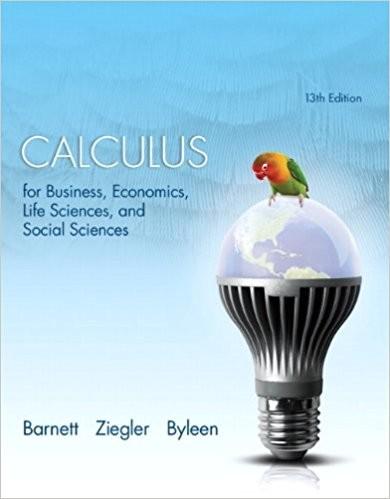Other documents randomly have different content
In reply to your Lordship's letter of the 25th instant, I have the honour to acquaint you, by the direction of His Royal Highness the Commander-in-chief, that nothing has transpired, further than what the public journals contain, respecting the fate of Captain Ronald Stuart, of the Gordon Highlanders. But, if that unfortunate officer does not rejoin his regiment at Cork before the next muster-day, he must be superseded.
I have the honour to be, My Lord, &c. &c.
HENRY TORRENS, MilSec."
"Right Hon. Lord Lisle, of Inchavon."
Alice wrung her hands, and wept in all the abandonment of woe. The last reed she had leant on had snapped—her last hope was gone, and she knew that she should never behold Ronald more. The next muster-day (then the 24th of every month) arrived; and, as being still "absent without leave," he was superseded, and his name appeared no longer on the list of the regiment. It was sad intelligence for his friends in Perthshire; but it was upon one gentleloving and timid heart, that this sudden stroke fell most heavily. Poor Alice! she grew very sad, and long refused to be comforted. As a
drowning man clings to straws, so clung Alice to every hope and chance of Ronald's return, until the letter of Sir Henry Torrens drove her from her last stronghold.
Days rolled on and became weeks, and weeks rolled on to months, and in her own heart the poor girl was compelled to acknowledge or believe, what her friends had long concluded, that Ronald Stuart was numbered with the dead. It was a sad blow to one whose joyous heart had been but a short time before full almost to overflowing with giddy and romantic visions of love and happiness. Under this severe mental shock she neither sickened nor died, and yet she felt as deeply and poignantly as mortal woman could suffer.
Few or none, perhaps, die of love or of sorrow, whatever poets and interested romancers may say to the contrary. But as this is not the work of the one or the other, but a true memoir or narrative, the facts must be told, however contrary to rule, or to the expectation of my dear readers.
In course of time the sorrow of Alice Lisle became more subdued, the bloom returned to her faded cheek, and she used to laugh and smile,—but not as of old. She was never now heard to sing, and the sound of her harp or piano no more awoke the echoes of the house. She was content, but far from being happy. When riding or rambling about with Virginia or Louis, she could never look down from the mountains on the lonely tower and desert glen of Isla without symptoms of the deepest emotion, and she avoided every path that led towards the patrimony of the Stuarts.
But a good example of philosophy and resignation under woe was set before her by her servant, Jessie Cavers. That young
damsel, finding that she had lost Evan Iverach beyond the hope of recovery, instead of spoiling her bright eyes in weeping for his death, employed them successfully in looking for a successor to his vacant place. She accordingly accepted the offers of Jock Nevermiss, the gamekeeper, whose coarse shooting-jacket and leather spats had been for a time completely eclipsed by the idea of Iverach's scarlet coat and gartered hose.
The old Earl of Hyndford came down again in the shooting season, and renewed his attentions to Alice; but with no better success than before,—much to his amazement. He deemed that her heart, being softened by grief, would the more readily receive a new impression. He quitted Inchavon-house, and, in a fit of spleen and disappointment, set off on a continental ramble, acting the disconsolate lover with all his might.
Louis, leaving Virginia at Inchavon with his sister, rejoined the Highlanders at Fermoy, and in a week thereafter had the pleasure to obtain a "company."
The Highlanders were daily expecting the route for their native country, but were again doomed to be disappointed. They were ordered to Flanders,—to the "Lowlands of Holland," where Scottish valour has been so often triumphant in the times of old, for the flames of war had broken forth again with renewed fury.
CHAPTER VI.
THE TORRE DE LOS FRAYLES.
"Thought's fantastic brood
Alone is waking; present, past, and future, Wild mis-shaped hope and horrible rememb'rings, Now rise a hideous and half-viewless chaos
To fancy's vision, till the stout heart fails
At its own prospect."
TheHermitofRoselva.
When Ronald found himself helplessly and, as he thought, irrecoverably immured in the TorredelosFrayles, and surrounded by a band of the most merciless and desperate ruffians conceivable,— defenceless, in their power, and secluded among the wildest fastnesses of the Spanish Pyrenees, his heart sickened at the hopelessness of his prospects. His life depended entirely on the will and pleasure of his captors, and he felt all that acute agony of spirit of which a brave man is susceptible when reflecting that he might perish like a child in their hands, helpless and unrevenged. He was conducted to a desolate apartment, to which light was admitted by a couple of loop-holes, which, being destitute of glass, gave free admittance to the cold air of the mountains.
Excepting an antique table and chair, the room was destitute of furniture, and Ronald was compelled to repose on the stone-flagged floor, with no other couch than a large ragged mantle, which a renegade priest, one of thousands whom the war had unfrocked, lent him, offering, at the same time, indulgently to hear his confession. Ronald glanced at the long dagger and brass-barrelled pistols which garnished the belt of the ci-devantpadre, and, smiling
sourly, begged to be excused, saying that he had nothing to confess, saving his disgust for his captors, and the sense he felt of Spanish ingratitude.
"MortedeDios!" swore the incensed priest as he departed, "you are an incorrigible heretic. Feeding you, is feeding what ought to be burned; and I would roast you like a kid, but for that meddling ape Gaspar!"
By order of the last-named worthy, who appeared to be the acknowledged leader, a sentinel was placed at the door of the apartment, which was well secured on the outside to prevent Ronald's escape. At the same time Alosegui, who said he wished to be friendly to a brother capitan, gave him a screw of a peculiar construction, with which he could strongly secure his door on the inside—a necessary precaution when so formidable an enemy as Narvaez Cifuentes was within a few feet of him. Having secured the entrance as directed, he rolled himself up in the cloak of the pious father,—but not to sleep, for dawn of day found him yet awake, cursing his untoward fortune, and revolving, forming, and rejecting a thousand desperate plans to escape. Even when, at last, he did drop into an uneasy sleep or dreamy doze, he was quickly aroused by the twangling of guitars and uproar of a drunken chorus in the next apartment, where the padre was trolling forth a ditty, which, a few years before, would have procured him a lodging for life in the dungeons of the terrible Inquisition.
To Stuart, his present situation appeared now almost insupportable. He sprang to the narrow loop-holes, and made a long and acute reconnoisance of the country round about, especially in the neighbourhood of the robbers' den, and he became aware that
escape, without the concurrence of Alosegui or some of his followers, was utterly impracticable. The tower was perched, like an eagle's nest, on the very verge of a perpendicular cliff, some hundred yards in height, and a chasm, dark and apparently bottomless, separated the tower from the other parts of the mountain, or, I may say, the land, as it hung almost in the air. At every pass of the hills leading to the narrow vale where it was situated, a well-armed and keen-eyed scout kept watchful guard, for the double purpose of giving alarm in case of danger, or warning when any booty appeared in sight. The bottom of the valley which the tower overlooked was covered with rich copse-wood, among which wound, like a narrow stripe of crystal, a mountain stream, a tributary of the Bidassoa,—the way to the West.
About noon he was visited by Gaspar Alosegui, with whom he was ceremoniously invited to take breakfast; and yielding to the cravings of appetite, he unhesitatingly accepted the proposal, and sat down at the same table with four fellows, who, Gaspar told him, were the greatest cut-throats and most expert bravoes in Spain. The apartment in which they sat was a dilapidated hall, which bore no distant resemblance to the one at Lochisla, save that its roof was covered with carved stone pendants and grim Gothic faces, among which hung branches of grapes or raisins, nets of Portugal onions, bags of Indian corn, and other provender; and the floor was strewed with mule-pannels, saddles, arms of all sorts, towards which Ronald glanced furtively from time to time, and countless bales, barrels, wineskins, &c. like a merchant's storehouse.
Ronald got through his repast without offending any of the dagger-grasping rogues; but he was so much disgusted with their
language and brutality of manner, that in future he resolved to eat by himself, at all risks. Narvaez, with a strong party under his command, was absent, to watch for a train of mules in the neighbourhood of Roncesvalles, and Ronald was therefore relieved from his hateful presence. Gaspar assembled the remainder of the band in solemn conclave, to consult about the ransom of Stuart. When the latter, who stood near Alosegui's chair, looked around him upon the ruffian assemblage, and beheld so many dark, ferocious, and black-bearded faces, he feltthat, among such men, his life was not worth a quarto.
The amount of the ransom had been fixed on the preceding evening. When Alosegui inquired where the Condé de Villa Franca then resided, no one could say any thing with certainty about it, but all supposed him to be at Madrid. In support of this supposition, the soi-disant padre produced, from the crown of his sugar-loaf hat, a ragged number of "ElEspañol," at least three months old, well worn and frayed, and which he carried about him for gun-wadding. In one of the columns, the arrival of Don Alvaro and his countess appeared among the fashionable intelligence. To Madrid, therefore, it was resolved that Ronald should despatch a letter, the bearer of which should be Juan de la Roca, who, for cunning and knavery, was equal, if not infinitely superior, to Lazarillo de Tormes, of happy memory. His travelling expenses were also to be defrayed, fully and amply, before the captive would be released. To save time, for it was a long way to Madrid, Ronald proposed to communicate with the British consuls at Passages or Bayonne; but the proposition was at once negatived by a storm of curses and a yell of dissatisfaction from the banditti, while, waving his hand, Alosegui acquainted him
sternly, that it was inconsistent with their safety or intentions to permit his corresponding with the consul at either of these places, as some strenuous and unpleasant means might be taken to release him unransomed. And before they would proceed farther in the business, the wily bandidos compelled him to pledge his solemn word of honour as a cavalier and soldier, that he would not attempt to escape,—a pledge which, it may be imagined, he gave with the utmost reluctance. While his bosom was swelling with rage and regret, Ronald seated himself at the table and wrote to Alvaro, praying that he would lend him the sum the thieves required, and setting forth that his life was forfeited in case of a refusal. Seldom has a letter been indited under such circumstances. While he wrote, a Babel of tongues resounded in his ear,—all swearing and quarrelling about the delay, and proposing that cold steel or a swing over the rocks should cut the matter short, as it was very doubtful whether the Count de Villa Franca would ever send so large a sum of money. But Gaspar's voice of thunder silenced their murmurs.
"I will drink the heart's blood of any man who opposes or disobeys my orders," cried he, striking the rude table with his mighty fist. "I am a man of honour, and must keep my word, parDiez! Hark you, my comrades; again I tell you, that for three months the life of the prisoner is as sacred as if he were an abbot."
"Three months!" thought Ronald bitterly. "In three months, but for this cursed misfortune, I might have been the husband of Alice Lisle."
The letter to Don Alvaro was sealed by Ronald's own seal, (which one of the band was so obliging as to lend him for the occasion,) and placed in the hand of Juan de la Roca.
"Adios, señor! adios, vaga!" said the young thief with an impudent leer, and presenting his hand to Ronald at his departure. "Remember, señor, that for your sake, I lose the chance of winning one of the sweetest prizes in Spain."
"How, Señor Juan?" replied Stuart, bestowing on him a keen glance of contempt.
"A girl, to be sure, a fair girl we captured near Maya," said Juan sulkily; "and I am half tempted to cast your despatch to the winds."
"Come, Juan, we must part friends at least," said Ronald, willing to dissemble when he remembered how much his fate lay in the power of this young rascal. He gave him his hand, and they parted with a show of urbanity, which was probably affected on both sides.
In a few minutes he beheld him quit the Friars' Tower, and depart on his journey mounted on a stout mule, and so much disguised that he scarcely knew him. His ragged apparel had been replaced by the smart attire of a student, and was all of becoming black velvet. A large portfolio was slung on his back, to disguise him more, and support the character which he resolved to bear as a travelling artista. He was a very handsome young fellow, and his features were set off by his broad sombrero and the black feathers which vanity had prompted him to don. A black silk mantle dangled for ornament from his shoulders, while one more coarse and ample was strapped to the bow of his mule's pannel. He had a pair of holsters before him, and wore a long poniard in his sash: altogether, he had very much the air of a smart student of Salamanca or Alcala. From a window Ronald anxiously watched the lessening form of this messenger of his fate, as he urged his mule down the steep windings of the pathway to the valley; and a thousand anxieties, and
alternate hopes and doubts distracted him, as he thought of the dangers that beset the path of his ambassador, of the lengthened duration and possible result of his expedition.
In no country save Spain could the dreadful atrocities perpetrated by the wretches into whose hands Ronald had fallen, have been permitted in the nineteenth century. A day never passed without the occurrence of some new outrage, and many were acted under his own observation. On one occasion the band captured an aged syndic of Maya, who had made himself particularly obnoxious by executing some of the gang. His captors, to refine on cruelty, tore out his eyes and turned him away on the mountains in a tempestuous night, desiring him to return to his magistracy, and be more merciful to cavaliers of fortune in future.
An unfortunate medico of Huarte, who was journeying on a mule across the mountains from St. Juan de Luz, where he had been purchasing a store of medicines, fell into their clutches somewhere near the rock of Maya. He could procure no ransom: many who owed him long bills, and whom he rescued from the jaws of death by the exercise of his art, and to whom his messenger applied, would send him no answer, being very well pleased, probably, to be rid of a troublesome creditor. One of the band being seriously ill, the life of the medico was to be spared if he cured him. The bandit unluckily died, and the doom of his physician was sealed. It was abruptly announced to him that he must die, and by his own weapons, as Gaspar informed him. The unhappy son of Esculapius prayed hard that his life might be spared, and promised that he would dwell for the remainder of his days in the Torre de los Frayles, —to spare him, for he was a very old man, and had many things to
repent of. But his tyrants were inexorable. After being confessed with mock religious solemnity by Gorgorza de la Puente, he was compelled to swallow every one of his own drugs, which he did with hideous grimaces and trembling limbs, amidst the uproarious laughter and cruel jests of his destroyers, who beheld him expire almost immediately after finishing the nauseous dose they had compounded, and then consigned his body to that charnel-house, the chasm before the doorway of their pandemonium.
Several months elapsed—months which to Ronald appeared like so many centuries, for he had awaited in almost hourly expectation the arrival of some intelligence from Madrid; but the dreary days lagged on, and his heart began to lose hope. Juan de la Roca appeared to have travelled slowly. Letters were received from him by Alosegui, at different times, by the hands of certain muleteers and contrabandistas, who, on passing the mountains, always paid a regular sum as toll to the banditti, whom, for their own sakes, they were glad to conciliate so easily. These despatches informed the thieves of Juan's progress; but they often cursed the young rascal, and threatened vengeance for his tardiness and delay. But Juan, by exercising his ingenuity as a cut-purse, pick-pocket, cloak-snatcher, and gambler, contrived to keep himself in a constant supply of cash; and he seemed determined to enjoy to the utmost the short term of liberty allowed him. At last he disappeared. His companions in crime heard of him no more; but whether he had been poniarded in some brawl, sent to the galleys, or made off with Stuart's ransom-money, remained a mystery. The last appeared to the banditti to be the most probable cause for his non-appearance, and their curses were loud and deep.
Stuart now found that his life was in greater jeopardy than before. Alosegui proposed to him to take the vows, and join the banditti as a volunteer in their next marauding expedition; and added, that if he would take pains to conciliate the good-will of the lieutenant, the Señor Narvaez, and distinguish himself, he might be promoted in the band. Alosegui made this proposal with his usual dry sarcastic manner; and although Ronald, who was in no humour to be trifled with, rejected the strange offer of service with as much scorn and contempt as he could muster, he saw, on second thoughts, that for his own safety a little duplicity was absolutely necessary. He affected to have doubts, and craved time to think of the matter, intending, if once well-armed, free of the tower, and with his feet on the free mountainside, to fight his way off, or to die sword in hand.
But he was saved from the dishonour of even pretending to be their comrade for a single hour, because, in a very short space of time, a most unlooked-for change of politics took place at Torre de los Frayles.
A train of muleteers about to depart from Elizondo for France or the lower part of the Pyrenees, sent forward one of their number to the robbers' den to pay the toll. The mule-driver was made right welcome. The banditti found it necessary to cultivate to the utmost the friendship of these travelling merchants, with whom they trafficked and bartered, exchanging goods and valuables for money, clothing, arms, and ammunition, supplies of which were regularly brought them, and accounts were balanced in the most exact and business-like manner.
The envoy from Elizondo had transacted his business, and been furnished with Alosegui's receipt and pass, formally signed and marked with a cross; but he seemed in no hurry to depart, and remaining, drank and played at chess and dominoes for some hours with the thieves, who were, scouts excepted, generally all within their garrison in the day-time.
Ronald knew that a messenger from a train of mules was in his place of confinement; but as visits of this kind in no way concerned him, he had ascended to the summit of the tower, and there paced to and fro, watching anxiously as usual the long dim vista of the valley, with the expectation of seeing Juan de la Roca, on his grey mule, wending his way towards the Tower of the Friars. He would have hailed with joy the return of this young rogue as a delivering angel; but such a length of time had now elapsed since his disappearance that, in Ronald's breast, hope began gradually to give way to despair; and when he remembered Alice, his home, and his forfeited commission, his brain almost reeled with madness. Shading his eyes from the hot glare of the noon-day sun, he was looking intently down the long misty vale which stretched away to the westward, when he was roused by some one touching him on the shoulder.
He turned about, and beheld the round and good-humoured face of Lazaro Gomez, fringed, as of old, with its matted whiskers and thick scrub beard.
"Lazaro Gomez, my trusty muleteer of Merida! how sorry I am to see you in this devil's den."
"Señor, indeed you have much reason to be very happy, if you knew all."
"How, Gomez?"
"Hush, señor! Speak softly: you will know all in good time. I came hither to pay the toll for my comrades, who at present keep themselves close in Elizondo for fear of our friends in this damnable tower; and there they must remain until I return. By our Lady of Majorga, but I am glad to see you, señor! As I say now to my brother Pedro, Señor Caballero, allow me to have the honour of shaking hands with you?"
Stuart grasped the huge horny hand of the honest muleteer and shook it heartily, feeling a sensation so closely akin to rapture and delight, that he could almost have shed tears. It was long since he had shaken the hand of an honest man, or looked on other visages than those of dogged, sullen, and scowling ruffians. At that moment Stuart felt happy; it was so agreeable to have kind intercourse, even with so humble a friend, after the five months he had passed in the dreary abode of brutality and crime.
"And why, Lazaro, do you address your brother, the sergeant, so formally?"
"Ah, señor! Pedro is a great man now! He is no longer a humble trooper, to pipe-clay his belts and hold his captain's bridle. By his sword he has carved out a fair name for himself, and a fair fortune likewise. He led three assaults against Pampeluna, like a very valiant fool as he is, and was three times shot through the body for his trouble. Don Carlos de España, a right noble cavalier, embraced him before the whole line of the Spanish army, and appointed him a cornet in Don Alvaro's troop of lancers. The next skirmish with the enemy made him a lieutenant, knight of Santiago, and of the most valiant order of "the Band." Don Alvaro has also procured him a
patent of nobility, which he always carries in his sash, lest any one should unpleasantly remind his nobleness that he is the eldest son of old Sancho Gomez the alguazil, who dwelt by the bridge of Merida."
"I rejoice at his good fortune."
"But I have not told you all, señor," continued the gossiping muleteer. "A rich young widow of Aranjuez, the Condéssa de Estramera, fell in love with him, when one day he commanded a guard at the palace of Madrid. An old duenna was employed—letters were carried to and fro—meetings held in solitary places; and the upshot was, that the condessa bestowed her fair hand, with a fortune of—of—the holy Virgin knows how many thousand ducats, upon my most happy rogue of a brother. Lieutenant Don Pedro Gomez, of the lancers of Merida; and now they live like a prince and princess."
"Happy Pedro! The condessa is beautiful; I have seen her, Lazaro."
"Plump Ignesa, the chamber-maid at the posada of Majorga, is more to my mind. I never could relish your stately donnas, with their high combs and long trains. This condessa is niece of that prince of rogues, the Duke of Alba de T——, who was killed in the service of Buonaparte: but Pedro cares not for that."
"In the history of his good fortune you see the advantage of being a soldier, Lazaro."
"With all due respect to your honourable uniform, which I am sorry to see so tattered, señor, I can perceive no advantage in being a soldier—none at all, par Diez! I envy Pedro not the value of a maravedi. He has served and toiled, starved and bled, in the war of independence, like any slave, rather than a soldier."
"So have I, Lazaro," said Stuart; "and these rags, and confinement here for five months, have been my reward."
The muleteer snapped his fingers, then gave a very knowing wink, and was about to whisper something; but, observing one of the banditti watching, he continued talking about his brother.
"Ay, like any poor slave, señor; and has more shot-holes in his skin than I have bell buttons on my jacket. And now, when the war is over, he has still a troublesome game to play in striving to please his hot-headed commanding-officer and lady wife, whom it would be considered a mortal sin to baste with a buff strap, as I may do Ignesa when she becomes my helpmate and better half. Pedro's honours weigh heavily upon him, and he has many folks to please; whereas I have none to humour save myself, and perhaps that stubborn jade Capitana, my leading mule, or Ignesa of Majorga, who gets restive, too, sometimes, and refuses to obey either spur or bridle. But my long whip, and a smart rap from my cajado, soothe the mule, and my sweet guitar and merry madrigal, the maiden. I am a thousand times happier than Pedro! I never could endure either domestic or military control, and would rather be Lazaro Gomez, with his whip and his mules, than the stately king of the Spanish nation. I have the bright sun, the purple wine, my cigar, and the red-cheeked peasant-girls to kiss and dance with,—and what would mortal man have more? Bueno!"
He concluded by throwing himself into an attitude, and flourishing his sombrero round his head with a theatrical air. Ronald smiled; but he thought that, notwithstanding all this display, and Lazaro's frequent assertions that he was happier than Pedro, a little envy continued to lurk in a corner of his merry and honest heart.
"But has Pedro never done aught for you, Lazaro, in all his good fortune?" asked Ronald.
"Oh, señor! his lady wife, disliking that her brother-in-law should be treading a-foot over sierra and plain at a mule's tail, gave me the post of EscrivanodelNumeroat Truxillo, which I kept for somewhere about eight weeks. But I always grew sad when I heard the merry jangle of mules' bells; and one morning, unable to restrain myself longer, I tossed my Escrivano's cope and rod to Satanas, seized my whip and sombrero, and once more took to the road as a merryhearted muleteer of Merida, and neither Pedro nor the condessa have been able to catch me since."
"I am happy to find you are such a philosopher," said Ronald, with a sigh, which was not unnoticed by the muleteer.
"I could say that, Señor Caballero, which would make you far happier," said he, with a glance of deep meaning. "But," he added, pointing to the armed bandit, who kept a look-out on the bartizan near them, "but there are unfriendly ears near us."
"Speak fearlessly, Lazaro!" said Ronald eagerly, while his heart bounded with expectation. "I know that rascal to be a Guipuscoan, who understands as little of pure Castilian as of Greek. In heaven's name, Lazaro, what have you to tell me? I implore you to speak!"
"Señor," said the muleteer, lowering his voice to a whisper, "you have thrice asked me about Don Alvaro, and I have thrice delayed to tell you what I know: good news should be divulged cautiously. Well, señor, the famous cavalier of Estremadura has encamped three hundred horse and foot among the mountains near Elizondo. He comes armed with a commission from the king, and his minister Don Diego de Avallo, to root out and utterly destroy this nest of wasps,
or cientipedoros. The place is to be assailed about midnight; so look well to yourself, señor, that the villains do not poniard you in the fray; and, if you have any opportunity to aid us, I need not ask you to do so. I am to be Don Alvaro's guide, as I know every foot of ground hereabout as well as I do at Merida, having paid toll here twenty times. But this will be my last visit of the kind; and I came hither only to reconnoitre and learn their pass-word, in case it should be needed. Keep a brave spirit in your breast for a few hours longer, señor, and perhaps, when the morning sun shines down the long valley yonder, Alosegui and his comrades will be hanging round the battlement, like beads on a chaplet. I pray to the Santa Gadea of Burgos that the night be dark, that we may the more easily take the rogues by surprise."
Ronald's astonishment and joy at the sudden prospect of liberation revealed to him by Lazaro Gomez, deprived him of the power of utterance for a time. He was about to display some extravagant signs of pleasure, and to embrace the muleteer, when the keen cold glance of the Guipuscoan bandit, who was watching them narrowly, recalled him to a sense of his danger. He almost doubted the reality of the story, and narrowly examined the broad countenance of the burly muleteer; but truth and honesty were stamped on every line of it. The horizon of Ronald's fortune was about to clear up again. He felt giddy—almost stunned with the suddenness of the intelligence, and his heart bounded with the wildest exultation at the prospect of speedy liberty, and of vengeance for the thousands of insults to which he had been subjected while a prisoner in the Torre de los Frayles.
When Lazaro departed, Stuart gave him the only token he could send to Don Alvaro,—a button of his coat, bearing a thistle and the number "92." He desired him to acquaint the cavalier that it would be requisite to provide planks to cross the chasm before the tower, otherwise the troops would fail to take its inmates by surprise.
This advice was the means of saving Stuart's life at a very critical juncture.
CHAPTER VII. SPANISH LAW.
"Hard the strife, and sore the slaughter, But I won the victory,— Thanks to God, and to the valour Of Castilian chivalry."
TheCidRodrigo.
As nearly as Ronald could judge by the position of the sun,—being without a watch,—it was about the hour of three in the afternoon when Lazaro departed.
It was yet nine hours to midnight, and although that time seemed an age to look forward to, yet so full was his mind of joy, and crowding thoughts of gladness, hopes, and fears, that evening surprised him long before he imagined it to be near; and he had
much ado in preserving his usual cold and serene look, and concealing the tumult of new ideas which excited him from the insolent bravoes, who were continually swaggering about, and, according to their usual wont, jostling him rudely at every corner and place where he encountered them. To remonstrate would have been folly, and to these petty annoyances he always submitted quietly.
On this last eventful evening he submitted to the penance of dining at the same table with the banditti, and even condescended to 'trouble' his friend the padre for a piece of broiled kid; but, as soon as the repast was ended, he withdrew to the tower-head. He preferred to be alone, almost dreading that his important secret might be read by Alosegui, Cifuentes, or any other who bent his scowling and lack-lustre eyes upon him.
At times, too, there came into his mind a doubt of the truth of Lazaro's story; but that idea was too sickening to bear, and he dismissed it immediately.
The sun had set. Masses of dun clouds covered the whole sky, which gradually became streaked with crimson and gold to the westward, where the rays of the sun yet illumined and coloured the huge mountains of vapour, although his light was fast leaving the earth.
The appearance of the sky and aspect of the scenery were wonderful and glorious. The whole landscape was covered with a red hue, as if it had been deluged by a red shower. The mountain streamlet wound through the valley of the Torre de los Frayles, like a long gilded snake, towards the base of a dark mountain, where appeared part of the Bidassoa, gleaming under the warm sky like a
river of liquid fire. Beautiful as the scene was, Ronald seemed too much occupied with his own stirring thoughts to admire it, or to survey any part with curiosity, save that which, by gradually assuming a more sombre hue, announced the approach of night. It was not easy for him to observe a landscape with an artist's eye, while placed in the predicament in which he then found himself.
He remembered, with peculiar bitterness, the countless mortifications and insults which he had received from Alosegui, the padre, and many others, and he contemplated with gloomy pleasure the display which these master-rogues would make when receiving, by the cord or the bullet, the just reward of all their enormities. He remembered with pleasure that he had never broken the parole of honour he had pledged to these miscreants,—and truly he had been sorely tempted. Owing to their irregular and dissipated course of life, more than one opportunity of escape and flight had presented itself.
"I expect a storm to-night, señor," said Gaspar, breaking in abruptly on his meditations.
"Indeed, señor!"
The other swore a mighty oath, which I choose not to repeat. "San Stephana el Martir! si, señor,—and no ordinary storm either. We shall miss our prize of a rich hidalgo of Alava, who, with an escort of twenty armed men, would have departed to-night from a posada a few miles from this, and meant to bivouac at a place on the hill-side, of which the inn-keeper, who is an old friend of mine, sent us all due notice. Look you: hombre!the sky grows dark almost while we look upon it, and the clouds, in masses of black and red, descend on every side, like gloomy curtains, to shut out the sun from our view, and the wind, which blows against our faces, seems
like the very breath of hell! Pooh! this is just such a night as one might expect to see our very good friend the devil abroad."
"He is no friend of mine, Señor Alosegui, although he may be a particular one of yours," said Ronald with a smile.
"By the holy house of Nazareth!" swore the bandit, "you may come to a close acquaintance with him after you have served for a time, as I expect you shall, in our honourable company."
"Well; but what of the storm?" asked Ronald, more interested about that, and unwilling to quarrel with his captor when there was so near a prospect of release. "What leads you to suppose there will be one to-night?"
"These few rain-drops now falling are large and round; hark, how they splash on the battlement! The valley, the sierra, the tower, the river, and every thing bear a deep saffron tint, partaking of the hue of the troubled sky. Santos! we shall have a storm roaring among the mountains and leaping along the valleys to-night, which will cause the old droning monks at Maya to grow pale as they look upon each other's fat faces, and while they mumble their aves, count their beads, and bring forth the morsel of the true cross to scare away Satanas and his imps of evil. By-the-by, speaking of Maya reminds me of your case, señor. A train of mules, which crossed the Pyrenees without paying us our customary toll, are on their return homeward from Bayonne to Maya, laden with the very best of all the good things this world affords for the use of the pious and abstaining fathers of the convent of Saint Francis. Forty men, commanded by Narvaez Cifuentes, will set out to-morrow to meet our friends in the Pass of Maya, and a sharp engagement will probably take place. A priest is with them; on his shoulder he bears
the banner of Saint Francis of Assissi, but if they imagine that we hidalgos of fortune will respect it, the holy fathers are wofully mistaken. The mules are escorted by a party of armed peasants, commanded by an old acquaintance of Gorgorza, the padre Porko, who is as brave as the Cid, and has served with honour in the guerilla bands during the war of independence. The muleteers are all stout fellows, too, and being well armed with cajados,trabucas, and long knives, will likely show fight,—and, truly, Narvaez will see some sharp work. Now, hark you, señor; if you are willing to join him and his brave companions, you will have an opportunity of making your first essay as a cavalier of fortune under a very distinguished commander. Do this, señor, and you will live among us honoured and respected, as an equal, a friend, and a brave comrade. If you fall in conflict, all is at an end; but if taken by the authorities, to suffer martyrdom by the law on the gallows, the garrote, or the wheel, then you will have the glory of dying amid a vast multitude, upon whose sympathy the fame of your exploits will draw largely. You like not my proposition? Well, señor caballero, I have to acquaint you that I shall not be able to resist the fierce importunities of Narvaez Cifuentes, and those who are his particular friends. Their poniards are ready to leap from their scabbards against you now,—now that all chance of your being ransomed has failed. I have a sort of friendship for you, señor, because, instead of supplicating for life, you have rather seemed to defy fearlessly the terrors of death; the which stubborness of soul, if it wins not the pity, certainly excites the admiration of the jovial picaros, my comrades. You are a fine fellow over the chessboard or wine-cup, and your bearing would be complete if you would follow the example of Cifuentes, and swear
and swagger a little at times. But you will acknowledge that the flowing ease of action and expression which distinguishes that accomplished cavalier, are difficult of imitation."
"I must confess they are, Señor Gaspar," replied Ronald, who could scarcely help smiling at the other's manner, which had in it a strange mixture of impudence, and part serious, part banter. "But I have really no desire to become the pupil of your friend."
"As you please, amigo mio; as you please," replied Alosegui, speaking slowly as he puffed at his cigar; for, like a true Spaniard, he smoked from the time he opened his eyes in the morning till he closed them again at night. "I once saw you perform the bandit to the very life in the* Posada de los Representes* at Aranjuez, when the British officers acted La Gitana, and some of Lope de Vega's pieces, for the amusement of themselves and the ladies of the city. You are a superb imitator, and, under the tuition of Narvaez, would, I doubt not, fulfil my utmost expectations."
"The devil take Narvaez!" muttered Ronald, who was getting impatient of Gaspar's style of speech.
"All in good time," said the other quietly. "You have been enemies of old, I believe; some affair of rivalry, in which Cifuentes was successful. I understand perfectly; but in our community among the Pyrenees here, we have no such petty feelings of dislike. However, señor," continued the robber, suddenly changing his satirical tone for a stern and bullying one; "however, I would have you to think well of all I have said, as I should be sorry to see your bones cast into the vast depth of the chasm, to swell the grisly company there. So give me a definite answer to-morrow, señor, before Narvaez departs for Maya, or fatal results may ensue."
Welcome to our website – the perfect destination for book lovers and knowledge seekers. We believe that every book holds a new world, offering opportunities for learning, discovery, and personal growth. That’s why we are dedicated to bringing you a diverse collection of books, ranging from classic literature and specialized publications to self-development guides and children's books.
More than just a book-buying platform, we strive to be a bridge connecting you with timeless cultural and intellectual values. With an elegant, user-friendly interface and a smart search system, you can quickly find the books that best suit your interests. Additionally, our special promotions and home delivery services help you save time and fully enjoy the joy of reading.
Join us on a journey of knowledge exploration, passion nurturing, and personal growth every day!










